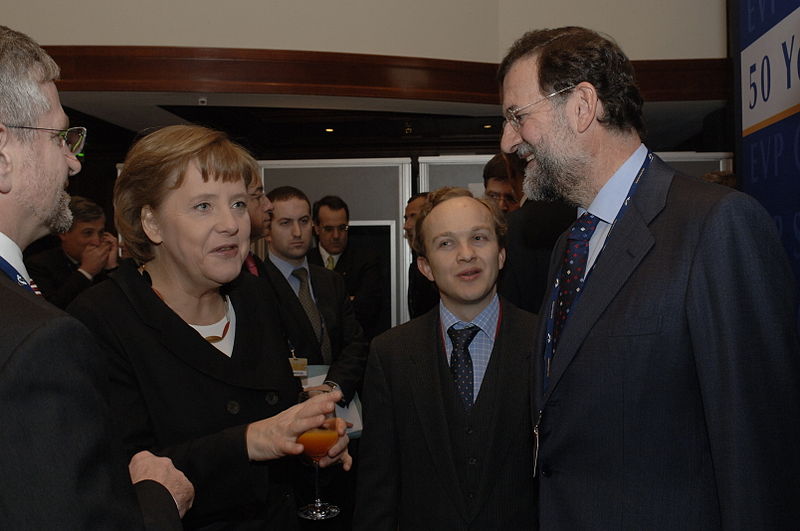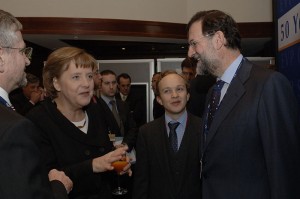

By Martin Barillas
The meeting on January 13 between the chief executives of the United States and Spain was convivial. Coming two years after President Barack Obama’s invitation to Spanish prime minister Mariano Rajoy, the meeting in the West Wing of the White House went on for an hour. In a press conference following the closed-door meeting, Obama paid tribute to Rajoy, who he said showed “great leadership” during a “very difficult situation”: a reference to the aftermath of the crash of a housing and construction boom that has left thousands unemployed in Spain and an uncertain economic future. Obama said that Rajoy faces the challenge of “job creation” in a country where at least 25 percent of its citizens are now unemployed.
As for the most public squabble between the U.S. and its NATO allies, such as Spain and Germany, Rajoy was irenic in his comments. Regarding revelations released by the former National Security Agency employee, Edward Snowden, who released documents implicating that agency in widespread eavesdropping (of even German chancellor Angela Merkel), Rajoy said that “The United States has given us satisfactory answers.” Moreover, Rajoy said that his government is in continuous contact with the U.S. Embassy in Madrid and that the explanations offered by the Obama administration remain satisfactory as long as there are no new revelations.
During the press conference, Obama praised the “great friendship and alliance” that the U.S. enjoys with Spain. He mentioned his optimism over negotiations leading to a free trade agreement with the European Union. “Cooperation has never been so strong,” said Obama as to the relationship between the two countries, which have been partners, for example, in the war against terrorism along the Horn of Africa, Iraq and Afghanistan.
Rajoy noted in the press conferences that the U.S. remains the principal foreign investor in Spain, while Spain is the third largest investor in the U.S. Saying that he shares Obama optimism over a EU trade agreement, Rajoy also said that Spain shares the same “vision” about North Africa and the Mideast.
Recalling that about one year he talked to Obama about the flagging Euro, Rajoy expressed satisfaction that the situation has improved. “Unemployment remains a great challenge, but the effort made will be positive for Spaniards,” he said. Rajoy said that there economic reforms are absolutely necessary, but “The first thing is to stabilize the economy so as to create more jobs.”
The Spanish prime minister made an apparent dig at Germany, which is experiencing a relatively better economic recovery. Rajoy said that those countries that are now in better shape should stimulate demand in order to help those countries which have smaller economies.
Martin Barillas is the editor of Spero News. He is a former US diplomat, who also worked as a democracy advocate and election observer in Latin America. He is also a freelance translator.




